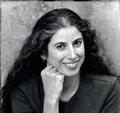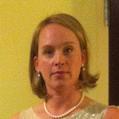
|
Introduction to Narrative and Healing
Dr. Aron. S. Wolf, an Anchorage psychiatrist, introduces research on how narrative can promote good health by reducing the stress that affects everyone's lives.

|

|

|
Using Stories for Growing and Healing
Dr. Christiane Brems, a UAA psychology professor, offers some hints about how to use stories, both in a group (including family) and individual context, for their healing and growth-promoting powers.

|

|

|
Stories of the Cultural Group (Part 1)
Storytelling has been an important means of making sense of the environment and of transmitting information, knowledge, and wisdom from generation to generation among many ethnic groups across the world, including the North American continent. (Christiane Brems, Ph.D.)

|

|

|
Stories of the Family (Part 2)
Storytelling allows families to transmit family lore and values from parents or grandparents to children, and to help children mature, make sense of their world, learn about their ancestry, and to facilitate parent-child relationships. (Christiane Brems, Ph.D.)

|

|

|
Stories of the Individual (Part 3)
While storytelling comes natural for children, many adults have forgotten how to tell a story, whether about themselves or invented. (Christiane Brems, Ph.D.)

|

|

|
Traditional Indian Medicine and Native American Cancer Patients
Dr. Linda Burhansstipanov, Executive Director of Native American Cancer Research, describes different ways Traditional Indian Medicine heals Native American cancer patients. The article includes a brief overview of the cancer experience of the Native cancer patient with an emphasis on the inclusion of Traditional Indian Medicine for cancer treatment, recovery and healing.

|

|

|
The Place of Narrative in the Courtroom
Dr. Philip J. Candilis, a forensic psychiatrist, discusses how narrative helps humanize and enrich procedures, rules, and abstract principles like objectivity and truth in the judicial system.

|

|

|
Narrative Medicine
Dr. Rita Charon has researched ways to improve the ability of doctors to understand what their patients tell them. She developed a program in narrative competence for the medical school at Columbia University, in which medical students learn how to better "read" their patients' stories through literary studies. Here she describes why and how she came to create this program.

|

|

|
Therapeutic Music as Narrative
Music therapist Nicki S. Cohen, Ph.D., describes the use of music as healing narrative.

|

|

|
Sandplay: Stories Told Without Words
Dr. Al Collins and Elaine Molchanov write about a healing therapy called Sandplay, where clients create their own narratives without needing words.

|

|

|
Why Write Personal Narratives?
Dr. Julie Connelly says that doctors are in an ideal position to be writers because they have "the most incredible view of life."

|

|

|
The Patient's Story. The Doctor's Machine
Dr. Jack Coulehan, professor of medicine in Society at Stony Brook University and a poet, shares his personal experiences of the dichotomies in American medical care where medical students are taught that narrative constitutes the heart of medical practice and yet in the hospital, an anti-narrative culture pervades.

|

|

|
Pulse Diagnosis: Traditional Tibetan Medicine
Alaskan radiologist Dr. William Cox describes the basic principles of traditional Tibetan medicine, plus his own experience of undergoing "pulse diagnosis."

|

|

|
Coping With Leisure in the Twenty-First Century
Nobel Laureate Robert W. Fogel shares insights into how technology and physiological advances present opportunities to use narrative as a spiritual resource.

|

|

|
Stories and Healing: Observations on the Progress of My Thoughts
Dr. Arthur W. Frank, professor of sociology at the University of Calgary, provides four lessons learned from writing three books on illness narratives. He discusses the concept of generosity in how a person understands and acts on the connection between another's life and his or her own.

|

|

|
Writing as an Adjunct to Medical Therapy
Dr. Michael Jones discusses the benefits of writing -- in alleviating mental and physical stress -- as an adjunct to medical therapy.

|

|

|
Writing Can Improve Working Memory
Dr. Kitty Klein writes for LitSite Alaska about her research which suggests that writing can improve your ability to concentrate.

|

|

|
Narrative in Medicine
(2 pages)
Dr. Patricia Kullberg lives and works in Portland, Oregon. She has written a number of fictional narratives centering on what happens when doctors and patients don't agree on their "shared story."

|

|

|
Poetry in Medicine: Take Two Sonnets and Call Me in the Morning
New York physician Danielle Ofri describes her experiences bringing poetry into the hospital environment.

|

|

|
Writing Rings Around Death
Dr. Johanna Shapiro, a professor in the Department of Family Medicine, University of California Irvine School of Medicine, discusses how she discovered the healing properties of creative writing through her own illness and introduced creative writing exercises into her own professional work with medical students.

|

|

|
Writing, Emotions and Memory
Dr. Esther M. Sternberg writes for LitSite Alaska about the connections between Writing, Emotions and Memory.

|

|

|
Introduction to the Healing Stories Created with Poetic Transcription
(2 pages)
Dr. Sharyl Toscano, a UAA (University of Alaska Anchorage) nursing professor, introduces poetic transcription as a means to provide anticipatory guidance to teens and young adults. “It Wasn’t Always That Way: A Poetic Transcription” on the experience of teen dating violence is reprinted here with permission from the American Journal for Nursing Practitioners.

|

|




